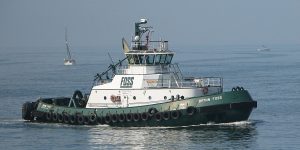The United States Court of Appeals for the Ninth Circuit rejected a fisherman’s claim that a verbal agreement to fish the entire season was grounds for recovering “unearned wages” after he became injured. Fisherman Jesse O’Neal signed a contract to work for American Seafoods Company. In the “fine print “, the contract provided that the fisherman would be hired for one fishing voyage, to be renewed after each voyage. This was a surprise to O’Neal, and surely the rest of the crew, as they were told that they could work the entire season. During his first voyage O’Neal injured his neck and back, causing him to leave the vessel before the end of the season.
The fisherman sought “unearned wages,” which are “actual wages the seaman did not earn because of his injury or illness” during his contracted employment with American Seafoods. Maritime law requires employers to pay these unearned wages. The fisherman sought to recover his unearned wages for the entire season, claiming that American Seafoods had committed to employ him for the season. The fine print in the signed written contract, however, states that any contract extensions or terminations must be made in writing to be valid. Because of this contract provision, the Court ruled that American Seafoods only had to pay unearned wages for one voyage.
Fishermen and seamen should be aware of the provisions in their contracts. Employers try to limit any money they have to pay after an injury. For instance, the standard fisherman’s contract provides for $20-$25 in maintenance money, even though it is extremely difficult to pay for their room and board with only $20-$25 per day. Another example of the employer’s attempt to limit their obligation to the injured fishermen is illustrated in Jesse O’Neal’s case. Everyone on his vessel understood that, should they do satisfactory work, they would be employed for the season. If, in Mr. O’Neal’s case, the contract provided for employment for the season, then his “unearned wages” would be paid for that season – not just the voyage of injury. However, because Mr. O’Neal signed a contract with the “trip to trip” provision, then the employer could get away with paying only one voyage of wages.
 The Seattle Foss shipyard located at 660 West Ewing Street in North Queen Anne, has permanently closed, and all operations have ceased. The 115 displaced shipyard employees will continue to receive salary and benefits and an average of overtime wages until the end of 2021, according to the company.
The Seattle Foss shipyard located at 660 West Ewing Street in North Queen Anne, has permanently closed, and all operations have ceased. The 115 displaced shipyard employees will continue to receive salary and benefits and an average of overtime wages until the end of 2021, according to the company. Maritime Injury Law Blog
Maritime Injury Law Blog



